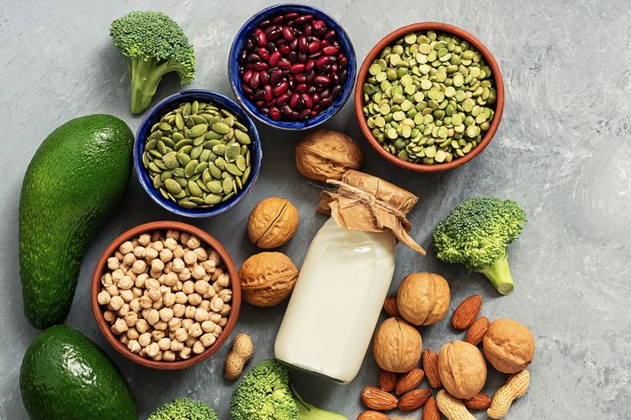The rise in plant-based diets has increased the popularity of plant-based milks such as almonds, soy, oat, and coconut milk. These dairy alternatives offer numerous benefits, including lactose-free and suitable for vegans and those with dairy allergies. However, regarding protein content, cow milk benefits still reign supreme. In this blog, we will explore why cow’s milk remains a superior source of protein compared to plant-based milk.
- Protein Content in Cow’s Milk:
Cow’s milk is naturally protein-rich, making it an excellent source for those looking to meet their daily protein requirements. A serving of 8 ounces (240 ml) of cow’s milk typically has 8 grams of protein. Cow milk includes all nine essential amino acids the body needs, making it a complete protein. These amino acids are essential for body development, tissue repair, and muscular growth.
- Protein Content in Plant-Based Milk:
Plant-based milk, on the other hand, generally has lower protein content compared to cow’s milk. While they contain some protein, the amount is significantly lower than in cow’s milk. For example, 8-ounce almond milk typically contains only 1-2 grams of protein, while plant milk may have around 6-8 grams per serving.
- The Importance of Protein in the Diet:
A macronutrient that is required for many body processes is protein. It is essential for the immune system’s support, the production of hormones and enzymes, and the development and repair of tissues. Protein is also essential for building strong bones and preserving muscular mass. Getting enough protein in the diet is especially crucial for children, teenagers, pregnant women, and those who regularly engage in physical activity.
- Amino Acid Profile:
As mentioned, cow’s milk contains all nine essential amino acids, making it complete milk with protein. The body cannot produce essential amino acids, which must be obtained from the diet. However, plant-based milk may be deficient in some of these vital amino acids, making it an inadequate source of protein. While combining several plant-based proteins to get a comprehensive amino acid profile is feasible, this takes careful meal planning and can be difficult for some people.
- Protein Quality:
Protein quality is found by its amino acid profile and how well the body can utilize it. Proteins from animal sources, like cow’s milk, are considered high-quality proteins as they contain all essential amino acids in the right proportions. Conversely, plant-based proteins may be lower in certain essential amino acids, reducing their overall protein quality.
- Digestibility:
Since cow’s milk protein is highly digestible, the body can effectively absorb and use it. On the contrary, plant-based milk, particularly those made from nuts and seeds, can contain compounds that inhibit protein absorption. This can result in a lower protein utilization rate than cow’s milk.
Conclusion
While plant-based milk offers many benefits and is suitable for specific dietary preferences and restrictions, they still lag behind cow’s milk regarding protein content. Cow’s milk remains a superior source of protein, providing a complete amino acid profile, high protein content, and excellent digestibility. Protein is an essential nutrient for overall health, and cow’s milk can be an important part of meeting daily protein requirements.
For individuals following a plant-based diet, it is crucial to incorporate a variety of protein sources to ensure they receive all the essential amino acids. Additionally, it’s essential to consult with a registered dietitian or healthcare professional to create a well-balanced diet that meets all nutritional needs. Whether you choose cow’s milk or plant-based milk, a balanced and diverse diet is key to maintaining good health and meeting your body’s protein requirements.


